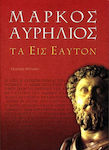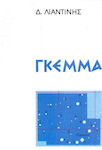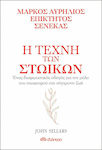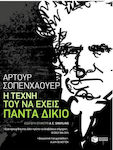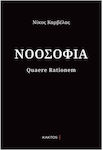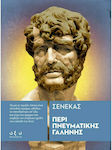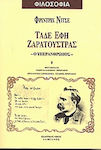Skroutz Buyers Protection
Φαινομενολογικές ερμηνείες στον ΑριστοτέληCode: 318686
- Author: Martin Heidegger
- Publisher: Patakis
- Μορφή: Soft Cover
- Έτος έκδοσης: 2011
- Αριθμός σελίδων: 335
- Κωδικός ISBN-13: 9789601633749
- Διαστάσεις: 21×14
Martin Heidegger
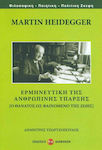
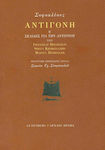
Classical Literature Books
Αντιγόνη, Ή σελίδες από την Αντιγόνη των Friedrich Holderlinm, Soren Kierkegaard, Martin Heidegger
from 17,50 €Added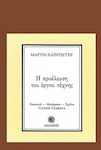
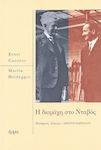
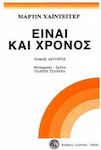

Philosophy Books
Περί της ουσίωσης και της έννοιας της φύσης, Αριστοτέλους, Φυσικής Ακροάσεως, Β' 1
from 14,84 €Added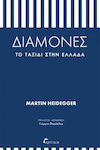
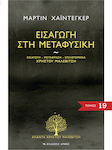
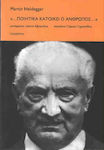


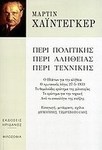

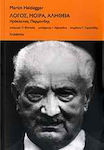
Similar products
All shops
Prices are calculated for:Luxembourg, Other Payment Options
- 14,39 €
- 13,45 €
- 16,99 €
- 19,09 €
- 14,32 €
- 13,43 €
Description
One must clearly keep in mind the specific moment. The manuscript was written at the end of the autumn of 1922, thanks to the request addressed to Heidegger by Paul Natorp from Marburg, asking him to submit a memorandum on where the phenomenological interpretations in Aristotle were, on which he was working at the time. In reality, the manuscript was the occasion for the invitation to Heidegger to take up a professorship in Marburg, an invitation that took place in the summer of 1923. At that time, I was only in Freiburg for the spring semester, near Heidegger, and there I was introduced for the first time by him to an understanding of Aristotle, which, because the young lecturer Heidegger was phenomenologically gifted, began a true revolution. Aristotle really started to speak to us in the present tense.
(Hans-Georg Gadamer)
The recent publication of Martin Heidegger's early university traditions from the 1920s opened a new chapter in understanding the great German thinker. Both the references of his students and listeners, including Hannah Arendt, Hans-Georg Gadamer, Hans Jonas, Herbert Marcuse, Leo Strauss, and the philosopher himself in the first period of his philosophical activity, are numerous, but the publication of his "Collected Works" shed ample light on a series of issues concerning both the genesis of his hermeneutic phenomenology and his position in the philosophical becoming of the first decades of the twentieth century. Seen in this context, the famous "Memorandum to Natorp" or the "Introduction to Aristotle," as the text contained in this volume is widely known, acquires particular significance, as its goal was from the outset the concise presentation of the progress of the phenomenological work of Privatdozent Heidegger, as well as the determination of his forthcoming research program.
Specifications
- Format
- Soft Cover
- Number of Pages
- 335
- Publication Date
- 2011
- Dimensions
- 21x14 cm
Important information
Specifications are collected from official manufacturer websites. Please verify the specifications before proceeding with your final purchase. If you notice any problem you can report it here.










































